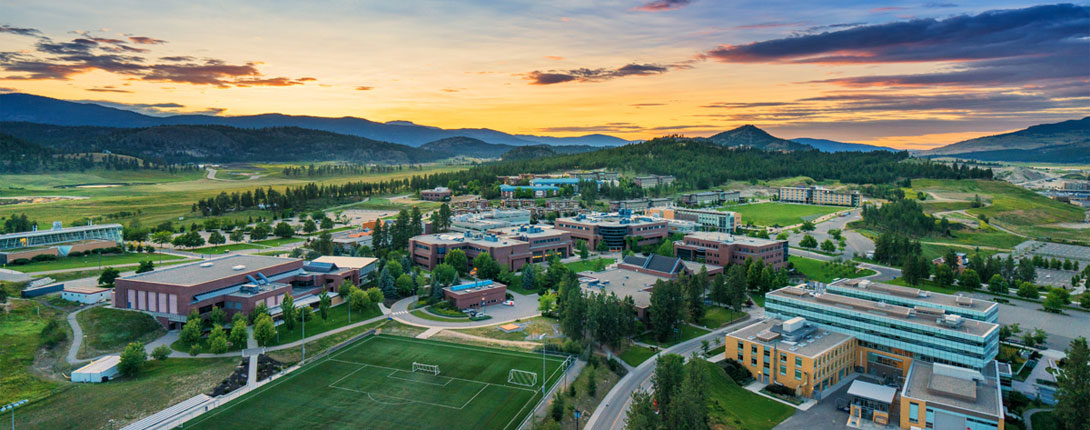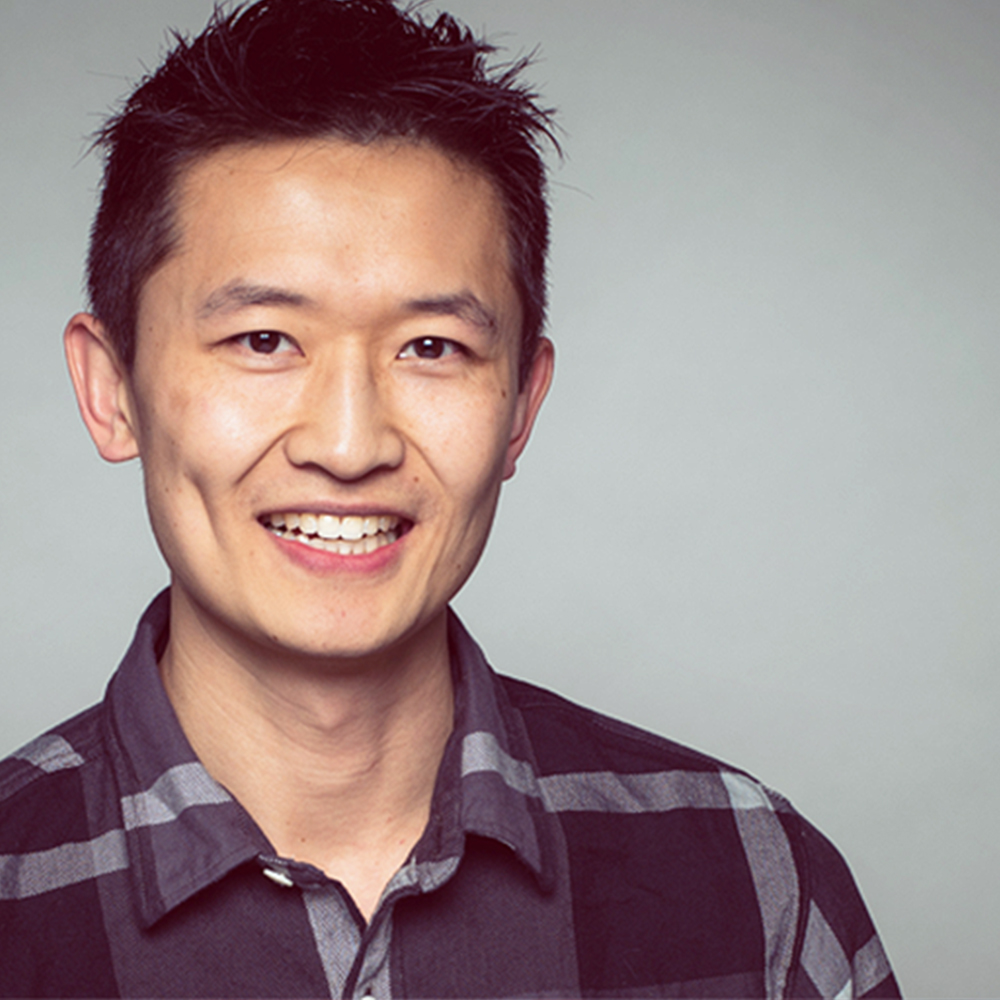Electrical Engineering
Bachelor of Applied Science (BASc)

Why electrical engineering at UBC’s Okanagan campus?
Earn while you learn
Develop international insights, industry connections and job experience while completing a paid Engineering Co-op work term in BC, across Canada, or anywhere in the world.
Design from the start
Begin your studies with project-based team learning, which provides foundational engineering skills and strengthens design projects. Work in state-of-the-art facilities for power electronics, lasers and optics, computer simulations, radio-frequency systems, micro- and nano-fabrication, and wireless communications.
Research connections
Tap into research opportunities and the expertise of renowned UBC Okanagan professors. They explore topics ranging from power systems and electronics, to photonics and electromagnetics, semiconductors and modern materials, microsystems and microelectronics, and wireless technologies.
what you need to know
The path to a Bachelor of Applied Science (BASc) degree begins at the School of Engineering in the Faculty of Applied Science with Engineering One & Two—foundation years rooted in project-based team learning.
Students acquire a broad understanding of engineering principles within Applied Sciences (APSC) before selecting one of five Engineering (ENGR) programs, including Electrical Engineering. All lead to a UBC Bachelor of Applied Science degree. Course content is enforced through lectures, hands-on laboratory work in new facilities, team-based projects and early design experience. You will also be immersed in active industry and community involvement.
UBC’s Electrical Engineering students are solidly schooled from the ground up before studying modern topics in electrical engineering, including communications, electromagnetics, microsystems, nanotechnology, power systems, and electronics. The focus of your program can be tailored to your own expertise and interests.
Third- and fourth-year students hone their expertise by taking specialized courses in electrical engineering sub-disciplines. Many gain valuable employment skills locally and abroad through the Engineering Co-op program.
You will have an opportunity to build analog and digital integrated circuits, develop wireless systems, fabricate micro- and nano-devices, and design new forms of power and data networks.
At UBC’s Okanagan campus, first-year Engineering One curriculum in Applied Sciences includes fundamentals of sustainable engineering design, drawing and CAD/CAM, electricity, magnetism, dynamics and technical communication.
Students proceeding to second year have the option of continuing their Engineering program in Electrical Engineering, Civil Engineering, Manufacturing Engineering or Mechanical Engineering.
Browse first- and second-year Applied Science courses and descriptions.
Browse all third- and fourth-year Engineering courses.
Sample courses in Electrical Engineering:
- ENGR 320 – Electromechanical Devices
- ENGR 365 – Engineering Electromagnetics
- ENGR 406 – Microelectromechanical Systems
- ENGR 455 – Power System Analysis and Design
Review the School of Engineering’s Bachelor of Applied Science (BASc) program details in the Okanagan Academic Calendar, a comprehensive guide to all programs, courses, services, and academic policies at The University of British Columbia.
Engineering Co-op
Co-operative work-placement opportunities exist for engineering students. Earn a degree and relevant, paid work experience at the same time. Apply through the Engineering Co-operative Education Office in September of Year 2 or Year 3 of the BASc degree program. Learn more about the Engineering Co-op Program.
More options:
Learn about graduate studies at the School of Engineering.
For your application to be considered, you’ll need to do three things:
- Meet general requirements (e.g., graduate from secondary school)
- Demonstrate a certain level of English competency
- Meet specific requirements for the degree you’re applying to.
Then, UBC will take a closer look at your application. We’ll read your Personal Profile to get a sense of who you are and what you’ve achieved. We’ll also look at all of your Grade 11 (junior level) and Grade 12 (senior level) courses, paying special attention to the courses that relate to the degree you’re applying to.
Find your specific requirements at https://you.ubc.ca/
Application Deadlines
Plan ahead to ensure you meet important deadlines and other target dates listed at you.ubc.ca.
Tuition Fees
UBC Okanagan’s fees compare favourably with universities of the same high calibre. See Financial Planning for helpful resources, and add up your first-year costs with our Cost Calculator.
Apply to UBC’s School of Engineering at you.ubc.ca — there are just five steps in the application process. Soon you could be studying at one of the world’s top universities.
Check out the steps to apply to UBC, and be sure to choose “Okanagan campus.”
Or let our Student Recruitment & Advising experts guide you: call 1-877-807-8521.

Your Career Options
Earn a UBC degree respected by employers around the globe. Electrical engineering offers dynamic career paths for graduates who want to be part of global solutions for energy conservation, power grids, communications networks and intelligent products.
- Electrical and electronics engineer
- Circuit design engineer
- Electrical distribution engineer
- Construction engineer
- Instrumentation and control engineer
- Analog or digital circuit design engineer
- Power systems engineer
- Communications industry, including firms working with networking, sensors, wireless systems, and fibre optics
- Mechatronics industry, including firms working with robotics, machines, and industrial processes
- Electronics industry, including firms working with semiconductor manufacturing, integrated (analog and digital) circuits, computers, and embedded systems
- Power industry, including firms working with electrical power generation and distribution, power electronics, motors, and alternative energy systems
Co-operative work-placement opportunities exist for engineering students. Earn a degree and relevant, paid work experience at the same time. Apply through the Engineering Co-operative Education Office in September of Year 2 or Year 3 of the BASc degree program. Learn more about the Engineering Co-op Program.
The School of Engineering at UBC’s Okanagan campus recruits Master of Applied Science (MASc) and Doctor of Philosophy (PhD) graduate students to study in our world-class research programs in Civil, Electrical and Mechanical Engineering.
The course-based Master of Engineering (MEng) program is designed for engineering graduates who want to advance their careers with enhanced technical and management knowledge.
The Master of Engineering Leadership (MEL) is a 12-month, full-time professional Masters program that equips industry specialists with the skills and perspective needed to lead and deliver complex, cross-discipline projects and operational results in natural resource industries. This program is suited to students who wish to pursue their education in Resource Engineering Management beyond the undergraduate level, but who do not wish to pursue a thesis research program. (First offering in 2018, pending final approval by the Ministry of Advanced Education).
Gain Valuable Experience
Learning experiences beyond the classroom help prepare you for a career and life after university. Expand your horizons while studying abroad, conducting meaningful research, or working in the community with your UBC colleagues.
- See the world through Go Global, a UBC program for exchange and study with more than 150 international partner institutions.
- Apply for funding through the Professional Activities Fund (PAF) and take part in a competition, conference, or field trip.
- Travel to conferences or competitions with financial assistance available through the Tuum Est Student Initiative Fund, which provides financial support up to $3,500
Follow your ideas and get a head start on your career with experience in Engineering research.
- In the Electrical discipline, the School of Engineering undertakes research in areas such as radio frequency systems, power electronics, wireless communications, and photonics.
- Work with renowned professors exploring diverse themes in a variety of areas including water environments, infrastructure management, construction materials, transportation engineering, geo-technical engineering, and much more.
Get a financial boost to start your research experience and help pay for travel and other expenses. Merit-based cash awards also look impressive on your resumé.
- Work with a faculty member on research funded through a Natural Sciences and Engineering Research Council of Canada (NSERC) undergraduate student research award.
- Check out these videos: Students and professors discuss the Undergraduate Research Conference and Jeffrey Krupa: 2017 Undergraduate Researcher of the YearJeffrey Krupa: 2017 Undergraduate Researcher of the Year.
- Gain work experience and get paid while taking part in Co-op, a program that allows students to supplement their studies with professional on-the-job training in BC, Canada or abroad. Contact UBC Okanagan’s Engineering Co-op Program Office by phone at 250.807.9279 or email.
- Apply your knowledge to a real-world engineering challenge as part of Capstone, a team-based consulting project that provides students with invaluable experience, industry connections, and something to talk about at that first big job interview.
- Learn through doing, create strong connections, and develop professional skills with a campus job arranged by UBC’s Work Study Program.
- Meet a community need and get practical experience by volunteering for a Community Service Learning project—a life-changing experience.
Meet Your Peers and Profs
Find out what students, faculty, and alumni have to say about the School of Engineering program at UBC’s Okanagan campus: ourstories.ok.ubc.ca.
WELCOME TO UBC’S OKANAGAN CAMPUS
The University of British Columbia is a global centre for research and teaching, consistently ranked among the 40 best universities in the world. In the psychology program at UBC’s Okanagan campus, you gain all the benefits of attending a globally respected university while studying in a close-knit learning community.

- Get a glimpse into life on UBC’s Okanagan campus at you.ubc.ca.
- Take a virtual tour of our state-of-the-art labs, modern facilities, campus residences.
- Visit the campus for a personal guided tour led by a student ambassador.
- Tour the campus, city and lake with this interactive 360-degree Kelowna From Above* video.
* Best viewed in Chrome and Firefox
On the first day of university, faculties offer “Meet the Faculty” sessions where you can get to know the Dean, professors, and the staff who provide student support. It’s all part of UBC Okanagan’s new student orientation: CREATE.
Attend an orientation tailored to your needs as an aboriginal student, domestic student, international student, or student living in residence. You can even register your parents for an orientation that includes a workshop and campus tour.
- Peer mentors are a great resource — ask questions and learn from students who’ve been there, done that.
- Navigate your studies with the help of a professor, your Program Advisor.
- Use the library which offers print, audiovisual and electronic research materials, a leisure-reading collection and loaner laptops. It also offers research consultations, instruction and workshops.
- The library’s Writing and Resource Centre can help you articulate your ideas. Pursue your research in a range of subject areas and scholarly genres, including essay writing, grammar, presentation skills, punctuation, thesis development, and coursework.
- Familiarize yourself with resources designed to help you succeed. Student Services offers a variety of academic supports, from study sessions to tutoring and writing workshops.
Take advantage of the many opportunities to get involved and stay active—from workout space in the new Hangar Fitness Centre, to athletic courts, intramurals, fitness classes, and varsity athletics.
Learn more at Sports and Recreation, which includes links to fitness facilities, sport clubs, intramurals and recreation programs, as well as the nationally ranked UBC Okanagan Heat varsity teams that compete in the Canada West Universities Athletics Association.
- Our students are proven visionaries, taking the initiative to launch new clubs and societies to further build their skills and connections outside the classroom.The School of Engineering has over 16 student clubs and groups, and that number grows every year.Here is a list of some of these organizations: Engineering Society, Alpha Omega Epsilon, Aero Club, BC Water & Waste Water Association Student Chapter, Canadian Society of Civil Engineering Student Chapter, Canadian Society of Mechanical Engineering Student Chapter, Engineers Without Borders, EngiQueers, Global Engineering Community, Great Northern Concrete Toboggan Race Team, IEEE Student Chapter, Motorsports Club, Sigma Phi Delta and Women in Engineering.
Meet new people while living in a study-oriented environment with easy access to academic and personal support.
UBC Okanagan offers modern residence living surrounded by hiking and biking trails. One of the newest residences, Purcell, includes a rooftop patio that offers a panoramic view of the campus and the Okanagan Valley.
Find out more about living in residence at you.ubc.ca.
UBC’s Okanagan campus borders the dynamic city of Kelowna, a hub of economic development with a population of more than 150,000 people—the fourth fastest growing population in Canada. In fact, the Okanagan Valley is rated one of the best communities in Canada to grow your business.
More than 160 buses travel daily from campus to key locations such as Kelowna’s cultural district and thriving downtown waterfront. The campus is two minutes from the Kelowna International Airport, one of the Top 10 busiest airports in Canada.
UBC Okanagan is situated within the First Nations territory of the Okanagan Nation, whose spirit of stewardship for the land is reflected in the university’s respect for sustainability.
A diverse natural region with sandy beaches, beautiful farms, vineyards and orchards, and snow-capped mountains, the Okanagan Valley features sweeping stretches of lakeside and endless mountain trails for biking and hiking.
Explore the Okanagan lifestyle at you.ubc.ca.


